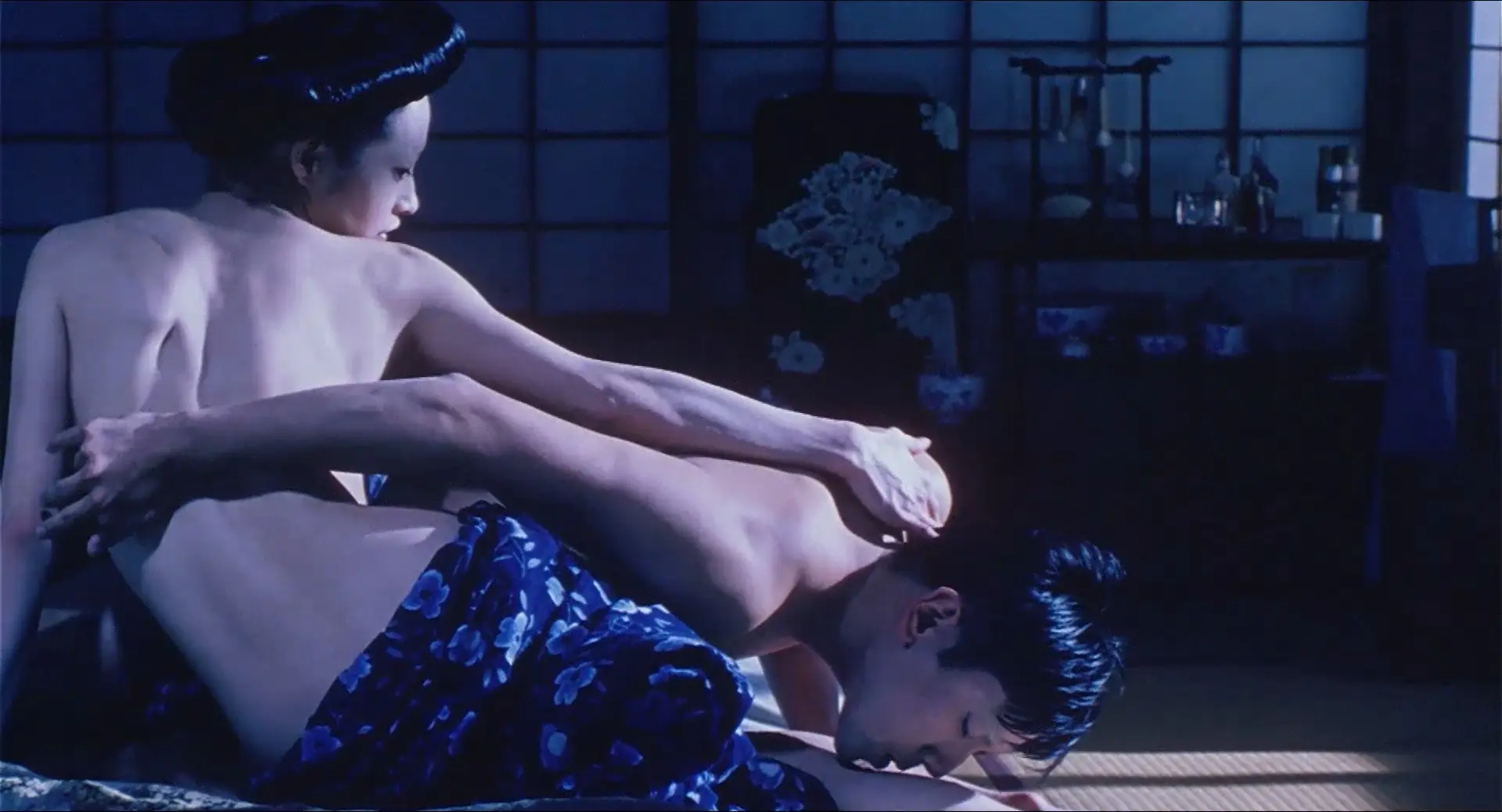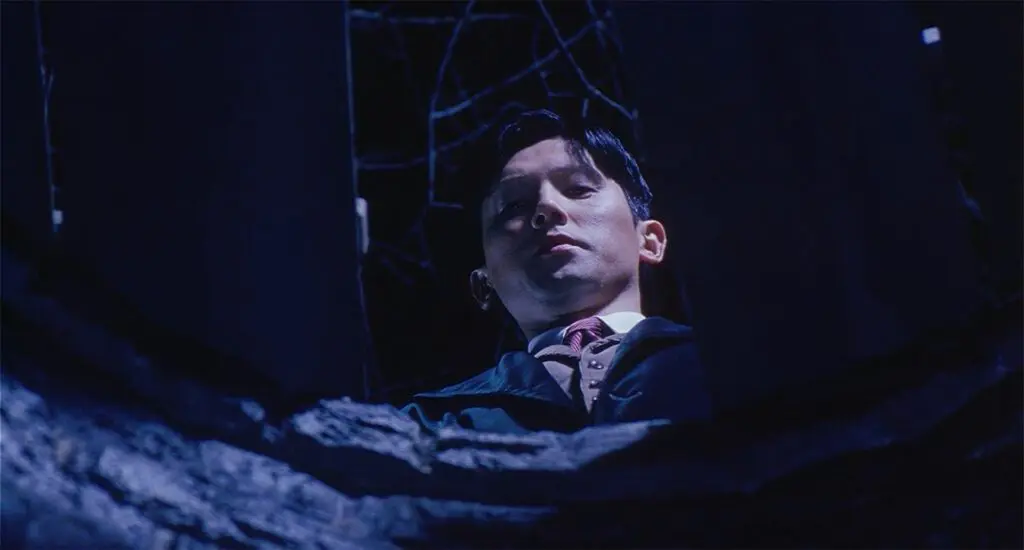Summary
Drama with a simple plot, yet full of mystery, betrayal, and vivid color; now released on BluRay.
If you are intrigued by the release of Gemini because of the name Shin’ya Tsukamoto, I should tell you straight away: this film is almost nothing like Tetsuo: The Iron Man, the film he is more famous for, from ten years earlier. Where Tetsuo was made of sharp edges, metal, and violence, Gemini comprises futons, satin, and dirt. Like the earlier film, though, the characters here are angst-ridden and passionate, the plot melodramatic and unreal.
In Gemini, we watch a handsome young couple, not long after the turn of the last century: Yukio (Masahiro Motoki, Departures), who has taken over his father’s medical clinic after returning from war; and his wife Rin (Ryô, Azumi). Yukio is well-loved by his respectable patients, but snobbish and prejudiced against those nearby living in poverty. Rin doesn’t quite fit into Yukio’s family, but her background is a mystery, so it’s impossible to know whether she should: Yukio apparently met her by chance after some mishap and she has no memory from before that. The two seem to adore each other, though there is some tension when Rin defends the ghetto people after Yukio’s bigotry shows itself. But one by one, Yukio’s parents are killed, and the crack widens; especially after Yukio is taken captive.
I have to confess a little ignorance: although I know and admire a number of Japanese films and novels very well, this number is still small. Gemini is unlike any of those, and I cannot comment on any Japanese heritage it may draw from (Shin’ya Tsukamoto adapted Gemini from a story by Edogawa Rampo). I can only tell you what Western comparisons came to mind, and perhaps they will give you a little indication of what to expect.
 Gemini is a mystery, full of betrayal, deception, and issues of identity: if Shakespeare had written a giallo thriller, it might have turned out like this. Social commentary is a major feature too, especially in relation to the hypocrisy of upper classes. The story is almost as simplistic as a Grimm fairy tale, with a very familiar model once the plot is well underway, and an inevitability about the way it unfolds. There were some minor characters whose roles I didn’t quite follow; minor enough to hardly matter overall, and this is the only flaw I can put my finger on.
Gemini is a mystery, full of betrayal, deception, and issues of identity: if Shakespeare had written a giallo thriller, it might have turned out like this. Social commentary is a major feature too, especially in relation to the hypocrisy of upper classes. The story is almost as simplistic as a Grimm fairy tale, with a very familiar model once the plot is well underway, and an inevitability about the way it unfolds. There were some minor characters whose roles I didn’t quite follow; minor enough to hardly matter overall, and this is the only flaw I can put my finger on.
The visual style is striking, presenting the period details with precise care, but then the deepening emotional conflicts with contrasting color palates: the interior to the couple’s home is usually a rich dark blue, while the slums are shown to be bright dusty brown. The cinematography (also by Shin’ya Tsukamoto) constantly changes from romantic to chaotic, gentle close-ups to frantic action; so the growing anxiety and confusion felt by Yukio is potentially passed on to the viewer. A couple of scenes involving Rin were simply beautiful, almost balletic, bringing to mind the unforgettable closing episode of Giri/Haji. I’d love to hear more of Chu Ishikawa’s spellbinding music, which adds a sublime atmosphere at times, both unreal and menacing.
Gemini, first released in 1999, has not been available in the UK until now, and lovers of cinema – not just Japanese cinema – finally have the chance to rent it from various video on demand platforms or buy on BluRay. The BluRay includes some fascinating extra features too, such as a “making of” featurette directed by Takashi Miike.
READ: Hard Days Review




